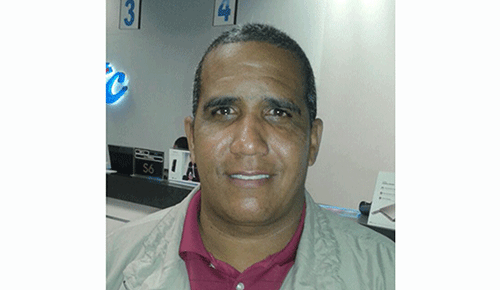A full bench of the Windhoek High Court yesterday dismissed a challenge to a section of the Combating of Rape Act by a Cuban doctor accused of raping a female colleague about four years ago.
Dr Pedro Louise Veira wanted the High Court to declare the section, which contains the words “but is not limited to”, unconstitutional and invalid and of no force of law and effect. He also wanted the section to be struck from the Act. He further wanted the court to declare that in so far as the prosecutor general based her decision to charge him on the basis of that section, her decision was unlawful and further declaring the section as unconstitutional as it unduly places an unreasonable limitation on his rights contemplated in Article 12 of the Namibian constitution.
In court papers drafted by his lawyer, Khadhila Amoomo, the applicant asked the court to strike the words “but it is not limited to” from the rest of the section and that the costs of the application be borne by whoever opposes it.
He cited the PG, the attorney general, the minister of justice and the government as respondents in the matter. The PG opposed the matter.
Windhoek High Court judges Claudia Claasen, Naomi Shivute and Herman January, however, found that the phrase “but is not limited to” is designedly broad to cover the wide extent of coercive circumstances and alike situations. Furthermore, they said, the phrase serves a legitimate purpose of dealing with grave societal mischiefs, namely the scourge of rape cases and perpetrators to evade punishment under the cloak of the law.
According to them, a perpetrator may utilise a wide variety of manipulative tactics to intimidate and force a complainant into submission, which makes it impossible for the Legislature to list each and every form of coercive circumstance in advance.
“Coercive circumstances alone do not constitute the offence of rape, as other elements are also required such as intention and the commission of the sexual act, the judges stated. Therefore, they said, the provision is not vague as the word ‘coercive’ is steeped in connotations of intimidating behaviour in one or other form and the absence of free will.
The judges further found that in accordance with the requirements of a charge, the particulars of the coercive circumstances will have to be specified in the charge, which in turn will serve to inform an accused what particular behaviour constituted the coercive circumstance.
Furthermore, they said, the procedure to inform an accused of the reason(s) for his or her arrest, is now firmly entrenched in our law in terms of Article 11(2) of the constitution and the authorities cannot deviate from that.
With regards to Veira, they said he was informed of the particulars of the charges, including the specific alleged forms of coercive circumstances as well as the evidence in possession of the State and armed with all that information, he has been placed in a position to properly prepare for trial and present a defence. Also, the judges stated, the phrase “but is not limited to” has not impeded on his rights to have adequate facilities for the preparation of his trial, therefore it is not vague and he knows what behaviour he has to answer for. Furthermore, they said, Veira was not charged with any provision under section 2(2)(c) which deals with threats and he has not persuaded the court that he is aggrieved or a person under threat of a conviction under that provision.
Although the PG has asked for a court order in case of a victory, the judges found that it would be in the interest of the public who would bring a constitutional matter to court to dispense of costs in the matter and therefore made no order as to costs.
Veira was represented by Thabang Phatela on instructions from Kadhila Amoomo and the PG by Nixon Marcus.
– rrouth@nepc.com.na


